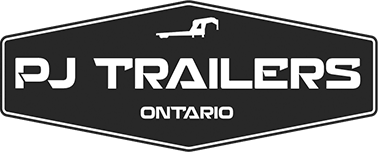How to Choose the Right Trailer for Your Needs: Work, Farm, or Play
A trailer is more than just a piece of equipment—it’s an investment. The right trailer saves you time, money, and frustration, while the wrong one can leave you constantly fighting weight limits, repairs, or safety issues. Whether you’re a contractor hauling heavy machinery, a farmer moving feed and livestock, or a weekend warrior loading up ATVs, choosing the right trailer starts with knowing your needs.
This guide walks you through the most common trailer types and how to decide which one is right for work, farm, or play.
Step 1: Understand Your Hauling Needs
Before looking at trailer models, ask yourself:
- What will I be hauling most often?
- How heavy is the load?
- How often will I use the trailer?
- Do I need enclosed protection or open accessibility?
Answering these questions first will help narrow down the type and size of trailer you need.
Step 2: Trailers for Work
Equipment Trailers
Best for contractors and landscapers hauling skid steers, excavators, or heavy tools. They usually come with ramps or tilt beds for easy loading, and tandem axles provide extra strength and stability.
Perfect for: Construction crews, landscapers, and anyone moving heavy machinery.
Dump Trailers
Built to carry and unload materials like gravel, soil, or debris. Hydraulic lifts save hours of manual unloading, making them a favorite on job sites.
Perfect for: Hauling loads that need quick unloading on construction or landscaping projects.
Step 3: Trailers for the Farm
Utility Trailers
Lightweight, versatile, and affordable, utility trailers are great for hauling small equipment, feed, fencing materials, or firewood. Easy to hitch and tow with most trucks.
Perfect for: Everyday chores and light hauling.
Livestock Trailers
Designed for safe animal transport with proper ventilation and interior dividers. Options range from small stock trailers to larger goosenecks.
Perfect for: Farmers and ranchers moving cattle, horses, or sheep.
Step 4: Trailers for Play
Enclosed Trailers
Keep ATVs, snowmobiles, motorcycles, and gear protected from the weather. They also double as mobile workshops or storage and provide added security.
Perfect for: Weekend adventurers and hobbyists who want extra protection.
Car Haulers
Built to transport cars, trucks, or race vehicles. Available in open or enclosed versions with sturdy ramps and tie-down points.
Perfect for: Car enthusiasts, motorsport fans, or anyone needing to move vehicles.
Step 5: Key Features to Consider
- Axles: Single axles are lighter and cheaper; tandem axles handle heavier loads.
- Brakes: Electric brakes improve safety, especially with heavy loads.
- Decking material: Wood vs. steel—each has pros and cons.
- Tie-downs and storage: Extra hooks, D-rings, and toolboxes make hauling easier.
- Ramp style: Fold-down, slide-in, or tilt beds affect loading ease.
Step 6: Gooseneck vs. Bumper Pull
- Bumper Pull: More affordable, versatile, and easy to hitch. Best for light to medium loads.
- Gooseneck: Stronger, more stable, and capable of hauling heavy loads. Requires a pickup with a bed hitch.
Step 7: New vs. Used Trailers
- New Trailers: Come with warranties, fewer maintenance worries, and modern features.
- Used Trailers: More affordable, but require careful inspection of brakes, axles, and flooring.
Conclusion: Invest in the Trailer That Works for You
Contractors may benefit most from a dump or equipment trailer, farmers from livestock or utility trailers, and recreational users from enclosed haulers. The key is to match the trailer to your most common hauling needs so it becomes a tool that saves you time and money—not a hassle.
Ready to find your perfect trailer? Explore our full inventory of PJ Trailers and parts designed for work, farm, and play.
